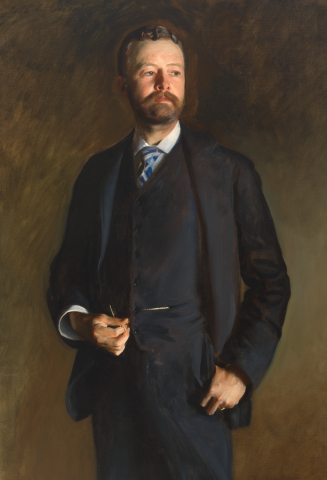
Henry Cabot Lodge (1850–1924)
Massachusetts Senator Henry Cabot Lodge envisioned the United States as a world leader. He believed that enforcing the Monroe Doctrine, which opposed European colonialism in the Americas, was critical to maintaining the United States’ “rightful supremacy in the Western Hemisphere.” Embracing the ideas of naval theorist Alfred Thayer Mahan, Lodge advocated for the U.S. Navy’s modernization and for securing overseas ports as coaling stations and commercial outposts. Like his close friend and political ally Theodore Roosevelt, Lodge regarded Cuba, Puerto Rico, and Hawai‘i as desirable outposts.
After the explosion of the USS Maine in Havana harbor on February 15, 1898, Lodge vigorously supported the war against Spain, recognizing it as an opportunity to gain geopolitical power and overseas territories. Later, he would advocate for the construction of the Panama Canal to connect the Atlantic and Pacific oceans and consolidate U.S. power in the Americas.